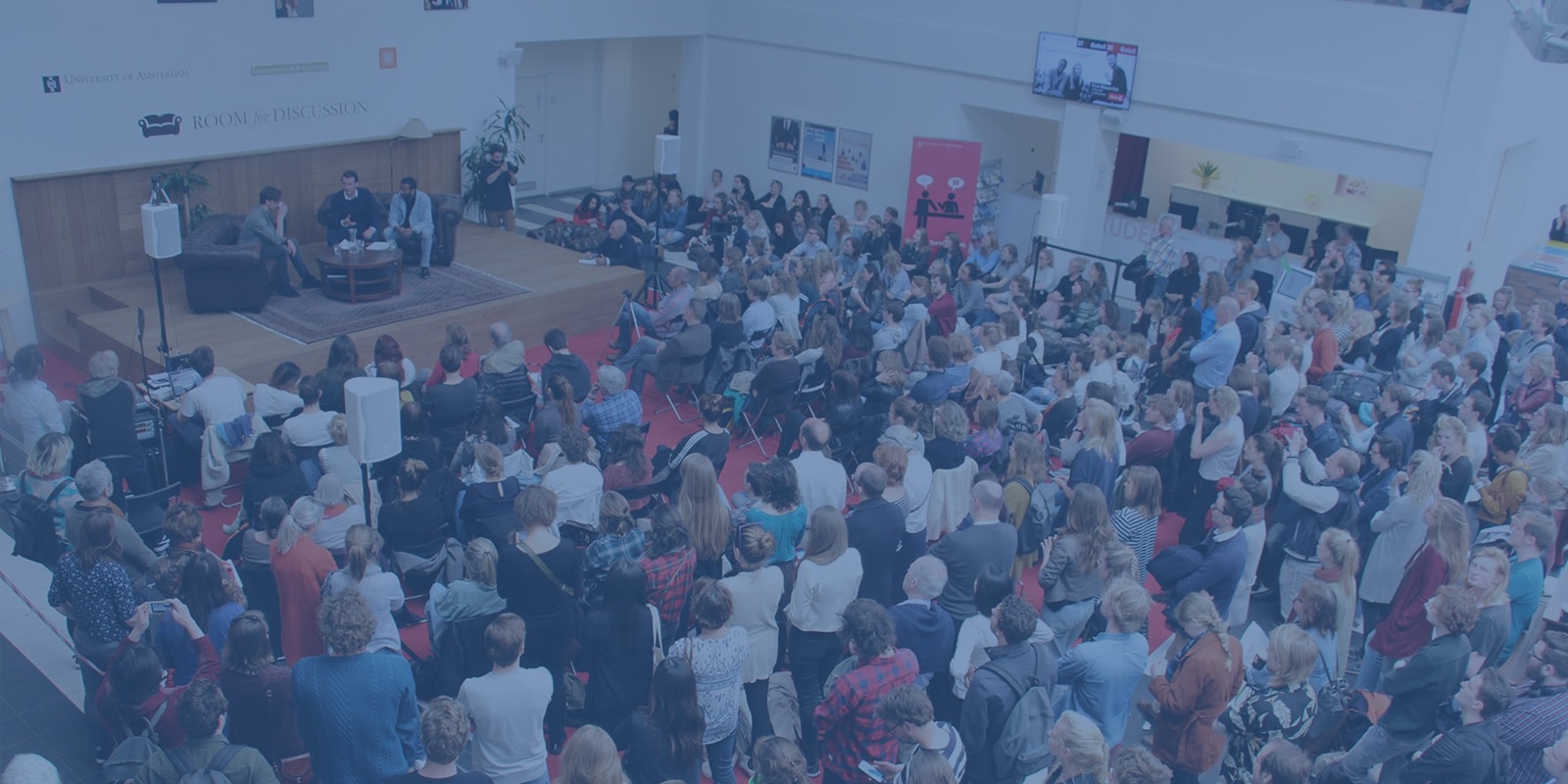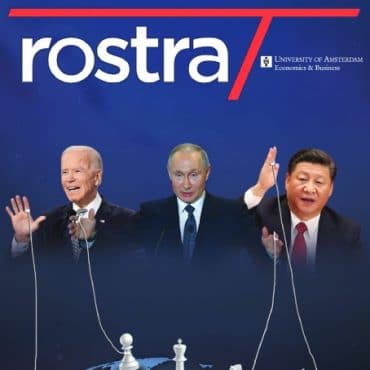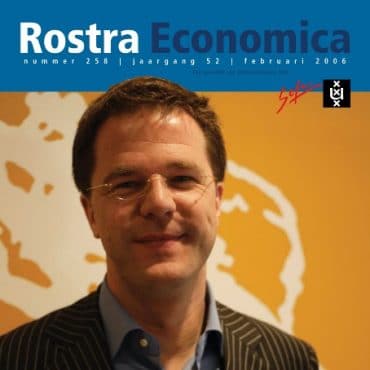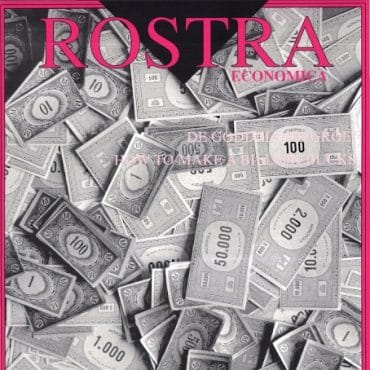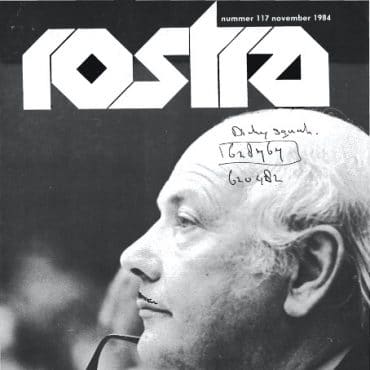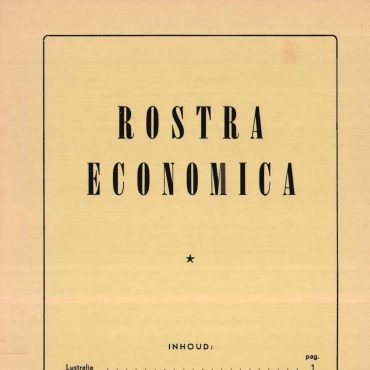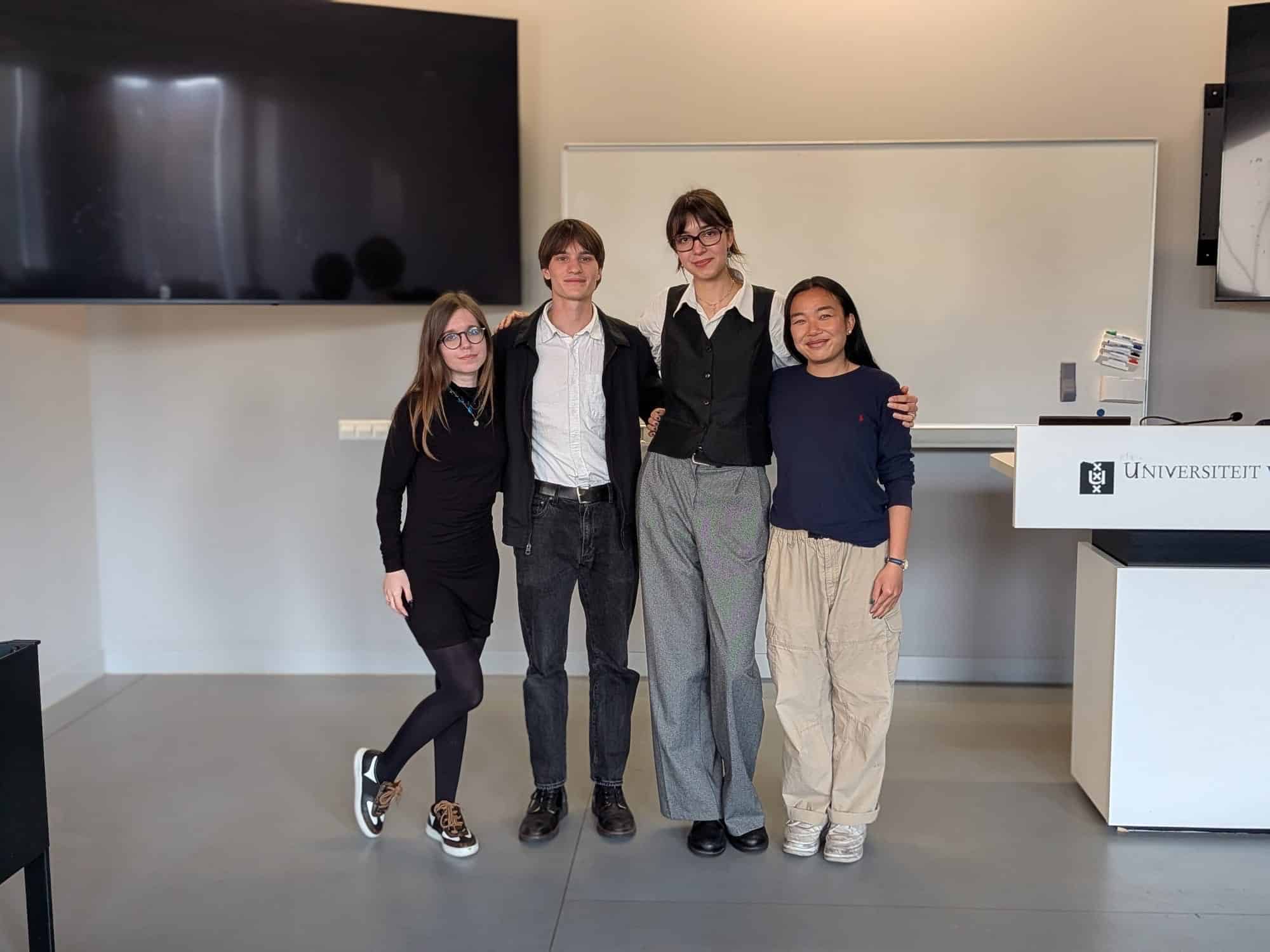
Rostra Economica
Rostra Economica has been a part of student life since 1953. Building upon its long and rich history as the magazine of the Faculty of Economics and Business, Rostra always keeps a finger on the pulse of things and shares new content almost every day. Check us out at rostraeconomica.nl and sign up for our newsletter for free events and weekly updates. If you are passionate, hard-working, and enjoy writing, consider becoming an Editor at Rostra Economica today. We cover various topics in our four distinct columns, which you can learn more about below.
Our Columns
Economics/Finance – Martin Svoboda
The Economics and Finance column lies at the heart of Rostra Economica, reflecting its origins as a publication dedicated to economics since 1953, when it began publishing academic articles. Over the years, Rostra has evolved, and so has the Economics and Finance Column. We aim to provide thought-provoking articles and assess current world events with a critical economic lens. Anyone with even the slightest interest in economics and current affairs can find something to read, as we present complex topics in a clear and engaging way without compromising on depth.
Politics – Jacob
In a never-ending world of geopolitics that increasingly enforces polarisation, we editors at the Politics column share the common trait of wanting to challenge and explore the dominant narratives that dictate what we read. This eagerness to inform and listen to the views and opinions of our fellow column members is something I greatly admired when joining the Politics column last year, and which I hope to uphold in the upcoming calendar year as Head Editor.
As a British-German student majoring in European Studies, Rostra has given me the platform and time to deepen my interest in and passion for journalism. The sense of community that this column and the entire newspaper have offered me has truly been special. In the year ahead, I hope to strengthen the Politics column by fostering greater active engagement within the team.
Culture & Technology – Sarp
In a world where technological breakthroughs reshape our daily lives as quickly as cultural trends come and go, the Culture and Technology column dives into the stories, questions, and ideas at this intersection. From the influence of social media on how we express ourselves, to the ethical dilemmas of AI, to the ways digital tools are transforming art, education, and community, we explore how innovation both reflects and challenges our shared culture.
Philosophy – Efe
When we speak of economics, we often turn to numbers, graphs, and models but behind those tools lies a set of deeper questions that cannot be answered without philosophy. What does it mean to value something? Is rational choice truly rational? How do ideas about justice, freedom, and morality shape the way markets function? In this column, the intersections between economics and philosophy will be explored: from the ethics of inequality and redistribution, to the philosophy of incentives, to the question of whether growth itself should be the ultimate goal. Philosophy may not offer tidy equations, but it gives economics its backbone it asks why before we ask how. And in a world where policy decisions carry both mathematical precision and moral weight, that’s why it matters more than ever.
The History of Rostra Economica
Rostra Economica was founded in May 1953 as the new magazine of the faculty study association (SEF) of the faculty of economics at the University of Amsterdam. Its formal purpose was to provide current information and to publish, mostly, academic articles. However, the magazine also served as a means for students to reflect on the faculty. Through contributions by professors it connected the academic community at the faculty. Over time, Rostra Economica became an important part of the SEF, and a burden on the budget of the association.
To make the magazine financially sustainable, economics students of the University of Amsterdam and the VU University Amsterdam decided to cooperate. In 1965, at its 52nd edition, the magazine was renamed Rostra Economica Amstelodamensis, now published for both universities in Amsterdam. The marriage only lasted until 1968. An attempt to start over was funded by the University of Amsterdam. The magazine, now called Rostra, started publishing again in 1970. It was a short magazine, hardly four pages long, and not at all appealing to students at the faculty.
The new editorial board of 1972 did not agree with that notion. With a new layout and renewed enthusiasm to be more than an announcement bulletin for the SEF, the magazine gained new life. Topics were increasingly less academic and focused more on current affairs in economics and at the university. In 1981, the magazine celebrated its 100th edition. The magazine was again named Rostra Economica in 1986, a name it has retained until now. Under its new (and old) name, the magazine pushed on towards its 200th edition in 1994 and its 50th birthday in 2003. The magazine featured more and more interviews with key figures in economics and politics, from Nout Wellink to Mark Rutte.
Although the history of Rostra Economica has been vibrant to say the least, the magazine has gone through some of its biggest changes in the last 5 years. In 2010, Rostra Economica was published in English for the first time. Recent changes in the media landscape did not pass by for Rostra Economica unnoticed either. When the magazine arrived at its 300th edition in 2014, it was clear that the future of the magazine is online. This academic year, Rostra Economica launched its new website, providing more content at a higher frequency. It is by no means the final destination of the magazine, as it continues to adapt to any challenges that the future brings. However, throughout the history of the magazine, there has been one constant. Rostra Economica is made by and for students, and it will continue to do that, regardless of the platform. It is a magazine with a rich history and a bright future ahead.
What can I learn as a committee member?
As a member of Rostra Economica, you will further develop your writing skills in the English language. In addition, you will learn from other editors and will experience working with strict deadlines. As a member of Rostra Economica, you will have the freedom to write and delve into topics that you will not usually run into.
Testimonial
(Rado) Teijo Redmer Baarda, Editor-in-Chief / Chairman of Rostra Economica 2020-2021
“Rostra Economica, which prides itself on being the oldest university magazine in the Netherlands, forms the perfect complementary activity while studying at the University of Amsterdam. It gives its student-writers the opportunity and platform to creatively express their ideas regarding contemporary issues in the worlds of politics, business, and economics. Additionally, the newspaper aims to cultivate a close peer-to-peer organizational structure that improves the quality of one’s writings… Perhaps the sales speech as seen above is already enticing you to sign-up, but in case you still find yourself on the fence let me briefly explain how Rostra shaped my university experience. Personally, I joined the organization as a regular editor/copy-editor at the beginning of the second year of my Bachelor. My goal in doing so was to improve my ability to formulate my opinions and gain deeper insights on current events. Man, did I underestimate the benefits! Not only did I, in my oh-so-humble opinion, accomplish the above, but I additionally also gained a far larger “mastery” of the English language. These improved skills were often utilized for university essays, leading them to become invaluable. Furthermore, membership in such a tightly knit organization motivates a person to do whatever is in their ability to see it succeed, and those growth opportunities are available. This led me to first take the position of Head Columnist of North America and later that of Editor-in-Chief. Are you an ambitious student who enjoys writing and wants to share their opinion with the world? Do you believe that the foundational principle of the university experience is finding truths through the freedom to think and speak? If so, look no further: apply to Rostra!”
